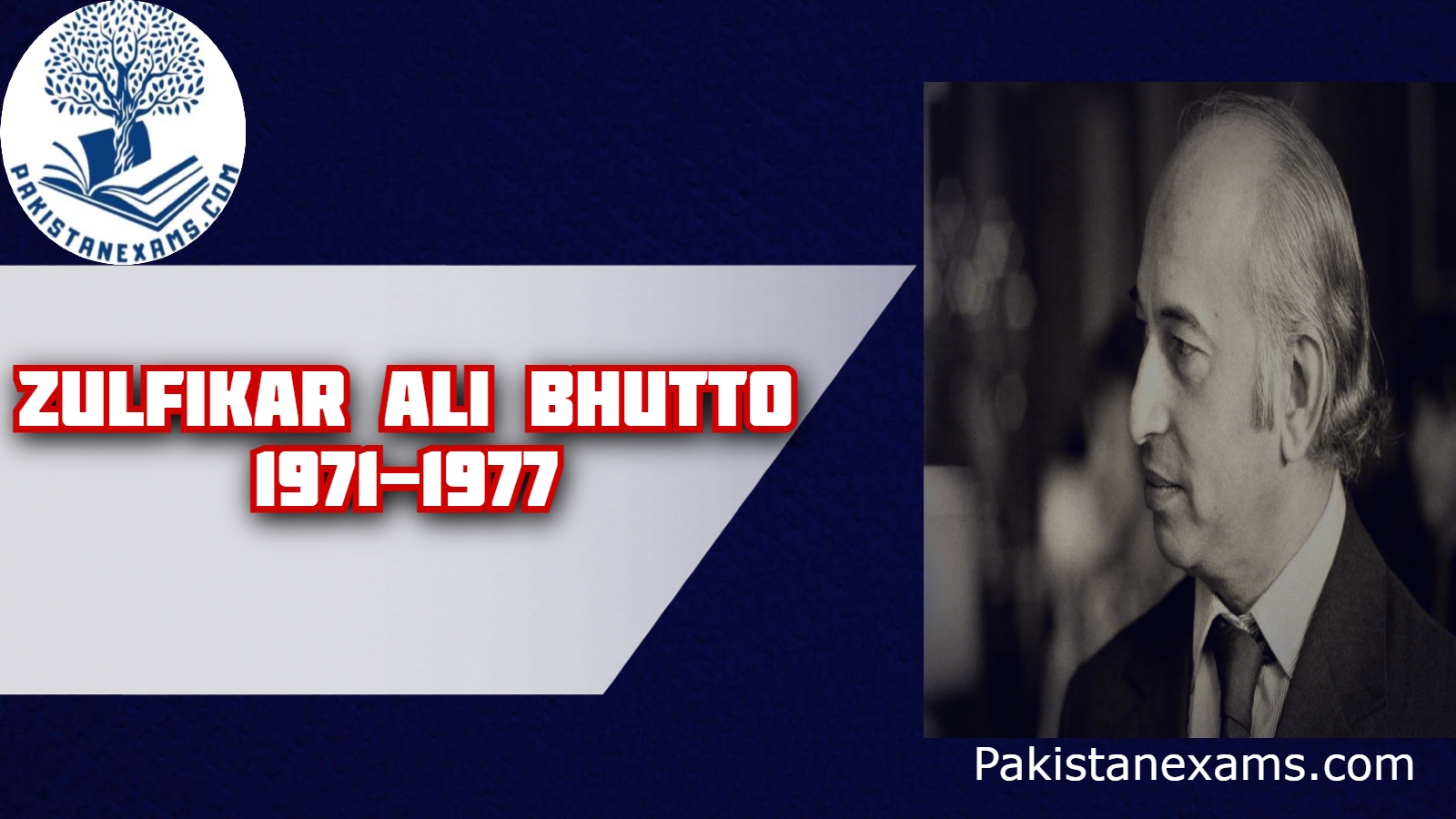Introduction
The period from 1971 to 1977 marks an important chapter in Pakistani history, defined by the strong leadership of Zulfiqar Ali Bhutto. Coming into power after the shocking events of the Bangladesh Liberation War and the separation of East Pakistan, Bhutto took control of a divided nation facing significant political and economic challenges. His time as Prime Minister saw a bold and transformative era, characterized by decisive actions, strategic shifts, and a persistent focus on shaping a distinct national identity.
Zulfiqar Ali Bhutto’s Foreign Policy and Relations with the Muslim World
Bhutto’s approach to foreign affairs was influenced by a clear understanding of Pakistan’s place in the world and a strong commitment to protecting the interests of the Muslim community. After the breakup of Pakistan in 1971, Bhutto launched a diplomatic campaign to rebuild Pakistan’s international reputation and build strategic partnerships. Key to his strategy was strengthening ties with Muslim-majority countries, as seen in his significant role in forming the Organization of Islamic Cooperation (OIC). Bhutto’s diplomatic efforts aimed to position Pakistan as a leader in Islamic unity, advocating for joint action on shared issues and representing Muslim nations globally.
Zulfiqar Ali Bhutto’s Political Policy
At the core of Bhutto’s political agenda was a dedication to reforming the constitution and strengthening democratic institutions. His most notable achievement came in 1973 with the introduction of a new constitution, which aimed to reshape Pakistan’s political landscape and address long-standing grievances. The 1973 Constitution emphasized principles of federalism, parliamentary democracy, and the protection of basic rights, setting the stage for a more inclusive and participatory form of government. Bhutto’s vision for a democratic Pakistan was summed up in the slogan “Roti, Kapra, aur Makan” (Food, Clothing, and Shelter), symbolizing his commitment to improving the lives of ordinary people and empowering the marginalized.
Zulfiqar Ali Bhutto’s Economic Policy
Bhutto’s economic strategies combined socialist ideas with practical measures to reduce social inequalities and boost industrialization. Central to his economic plan was the nationalization of key industries and reforms to redistribute land and wealth, aiming to empower rural communities. However, Bhutto faced challenges from powerful interests and bureaucratic hurdles, leading to mixed economic growth and development outcomes. Despite these challenges, Bhutto’s legacy lives on as a supporter of fairness and economic equality, whose policies laid the foundation for future economic reforms in Pakistan.
Zulfiqar Ali Bhutto’s Imprisonment
The peak of Bhutto’s political career ended with his imprisonment following a military coup in 1977. Accused of rigging elections and displaying authoritarian tendencies, Bhutto’s government was overthrown by General Zia-ul-Haq, plunging Pakistan into a period of political unrest and suppression. Despite international pressure for his release, Bhutto remained defiant, refusing to compromise his principles or seek exile. His imprisonment and subsequent execution in 1979 marked a tragic conclusion to a turbulent chapter in Pakistan’s history, yet his legacy remains as a symbol of resilience and defiance against tyranny.
Conclusion
Zulfiqar Ali Bhutto’s era from 1971 to 1977 represents a crucial period in Pakistani history, characterized by significant political change and transformation. Decisive actions, visionary reforms, and a steadfast dedication to democratic principles and social justice marked his leadership. Although his time in power was cut short tragically, Bhutto’s legacy inspires future generations, reminding us of the enduring importance of leadership, honesty, and unwavering dedication to democratic ideals and nation-building.

